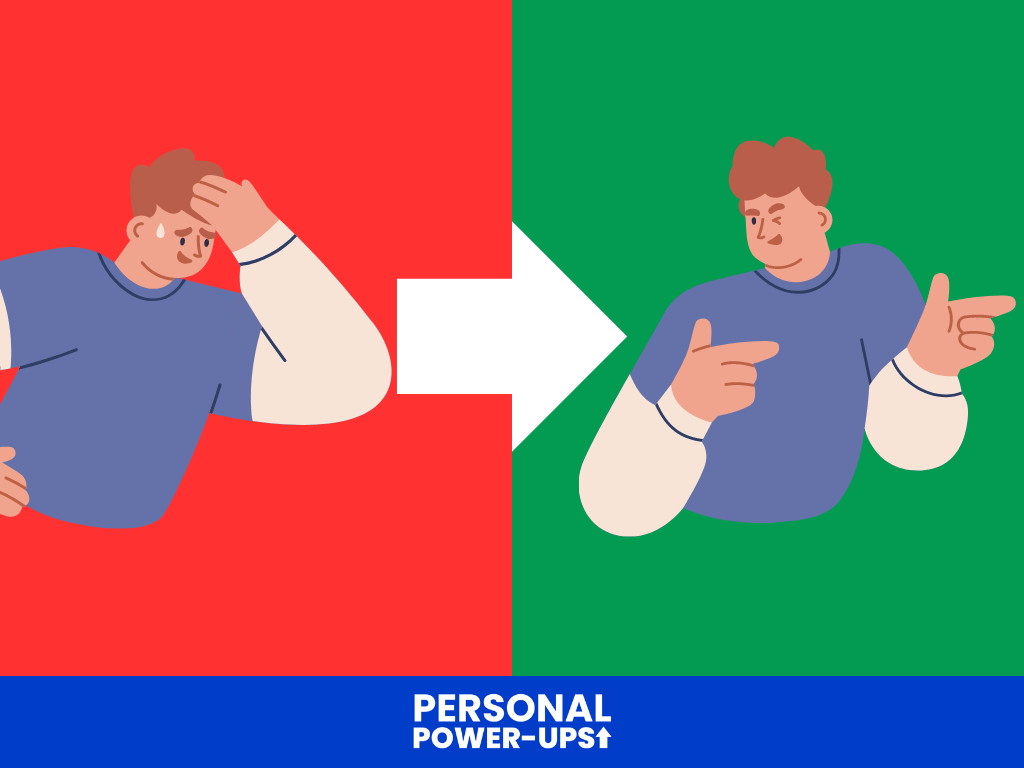Sharpen Your Social Skills
Having a good social life is a cornerstone of a happy and healthy life. Your social skills are the key to create such a social life. These skills help you have fun conversations with others, understand the people around you, and easily navigate social situations (even the often dreaded Thanksgiving dinner). By developing your social skills you open up opportunities in both your personal and professional life. So let’s get started and create a better social life!
Table of Contents
Social Skills Power-Ups
If you’d like to learn more about improving your social skills, be sure to check out our collection of articles below.
What Are Social Skills?
Social skills are the skills you use to get along with others. These skills help you talk to people, build relationships, and handle all kinds of social situations. This can be anything from starting a conversation with your crush, reading body language, or showing empathy when a friend is upset.

What Types of Social Skills Are There?
There are many different types of social skills, each useful in their own way. Some key skills are:
Communication – This covers both talking and listening. It’s about expressing yourself clearly and also paying attention to what others are saying.
Non-verbal communication – This includes body language, eye contact, facial expressions, and gestures. Sometimes what you with your body matters just as much as what you say with your words.
Empathy – Understanding how someone else is feeling and showing that you care. It helps you connect with others on a deeper level.
Active listening – This is more than just hearing someone. It’s really focusing on what they’re saying, asking questions, and responding thoughtfully.
Teamwork – Working well with others, contributing your ideas, and respecting the input of the people around you.
Conflict resolution – Handling disagreements in a calm and fair way, trying to find solutions that work for everyone involved.
Assertiveness – Standing up for yourself and your needs in a respectful way without being aggressive.
Each of these social skills helps you connect with others and make your interactions more positive and productive. And each of these skills can be improved through practice.
Why is it Important to Have Great Social Skills?
Having great social skills is important because they make life a lot smoother and more fun. Good social skills help you connect with other people, which can lead to stronger relationships, better teamwork, and more opportunities in both your personal and professional life. These skills can help you nail job interviews (or get helpful feedback after an interview), for example.
When you can communicate well, people are more likely to listen to you and respect your opinions. Strong social skills also help you solve conflicts and problems without creating tension. Plus, they make it easier to read situations and respond appropriately, whether it’s in a casual conversation or a serious discussion.
There is a lot of scientific research on this topic, and the positive effects of a great social life are big: lesser chance of developing cancer, depression or high blood pressure.
Overall, you’re more likely to be happy, successful, and healthy if you have good relationships with others. To get there, you need great social skills!

How Can I Improve My Social Skills?
Improving your social skills takes practice, but it’s something you can work on step by step.
Active Listening
One of the best ways to start is by focusing on active listening. Try to really hear what the other person is saying instead of thinking about what you’ll say next. Showing you’re engaged through small gestures, like nodding or asking follow-up questions, makes a big difference. It’s one of the best strategies to have a good conversation with anyone.
Body Language
Paying attention to body language is also key. Good body language makes you look more confident as well. Make eye contact, smile, and use open gestures, as this makes you more approachable. Be sure to avoid phubbing, as almost nothing kills a conversation as quickly as someone digging into their phone.
Practice Small Talk
You can practice small conversations, like chatting with someone in line or a colleague, to get more comfortable in social situations. This will also help you avoid those dreaded awkward silences.
Use Open-Ended Questions
Also, asking open-ended questions helps keep your conversations going. Instead of simple yes or no questions, try asking things that encourage people to share more about themselves. This not only keeps the conversation flowing but shows genuine interest. And people love talking about themselves! If you do this well, you never run out of things to say.
Be Empathic
Empathy plays a big role too. When you try to understand what the other person is feeling, it helps you connect on a deeper level.
Also Be Assertive
Being assertive, meanwhile, is about expressing your thoughts and needs in a clear but respectful way. It’s a balance between being too passive and coming off as aggressive. This can be especially hard if you struggle with being shy.
Gather Feedback
Getting feedback from friends or coworkers can also help. Sometimes it’s hard to see how you come across, so an outside perspective often gives you useful information on how you can further improve your conversation skills.
Reflect On Yourself
Besides gathering feedback it’s also important to reflect on your own behavior. One of the best ways to do this is by using communication journal prompts and taking the time to implement changes to your – often unconscious – behavior in social situations.
Tune In On Social Cues
Lastly, always be mindful of social cues like tone of voice or facial expressions. These can help you adjust your responses and improve how you interact with others.
Practice!
As with pretty much all personal growth, it’s about action. So after reading more about social skills in our articles, be sure to take action and practice, practice, practice! That’s the best way to improve.
What About Introverts?
Yes, what about them? Having great social skills has nothing to do with being an introvert or extrovert. We’ve written an entire article on the myths about introverts and extroverts, and it’s a common misconception that introverts don’t like socializing or have poor social skills.
It can be a challenge for both introverts and extroverts to make friends and feel connected with others. We’ve created a guide on how to make friends as an introvert, and also some tips for introverts on how to make friends in college. We also plan to make content for extroverts, as they can face several challenges as well.






